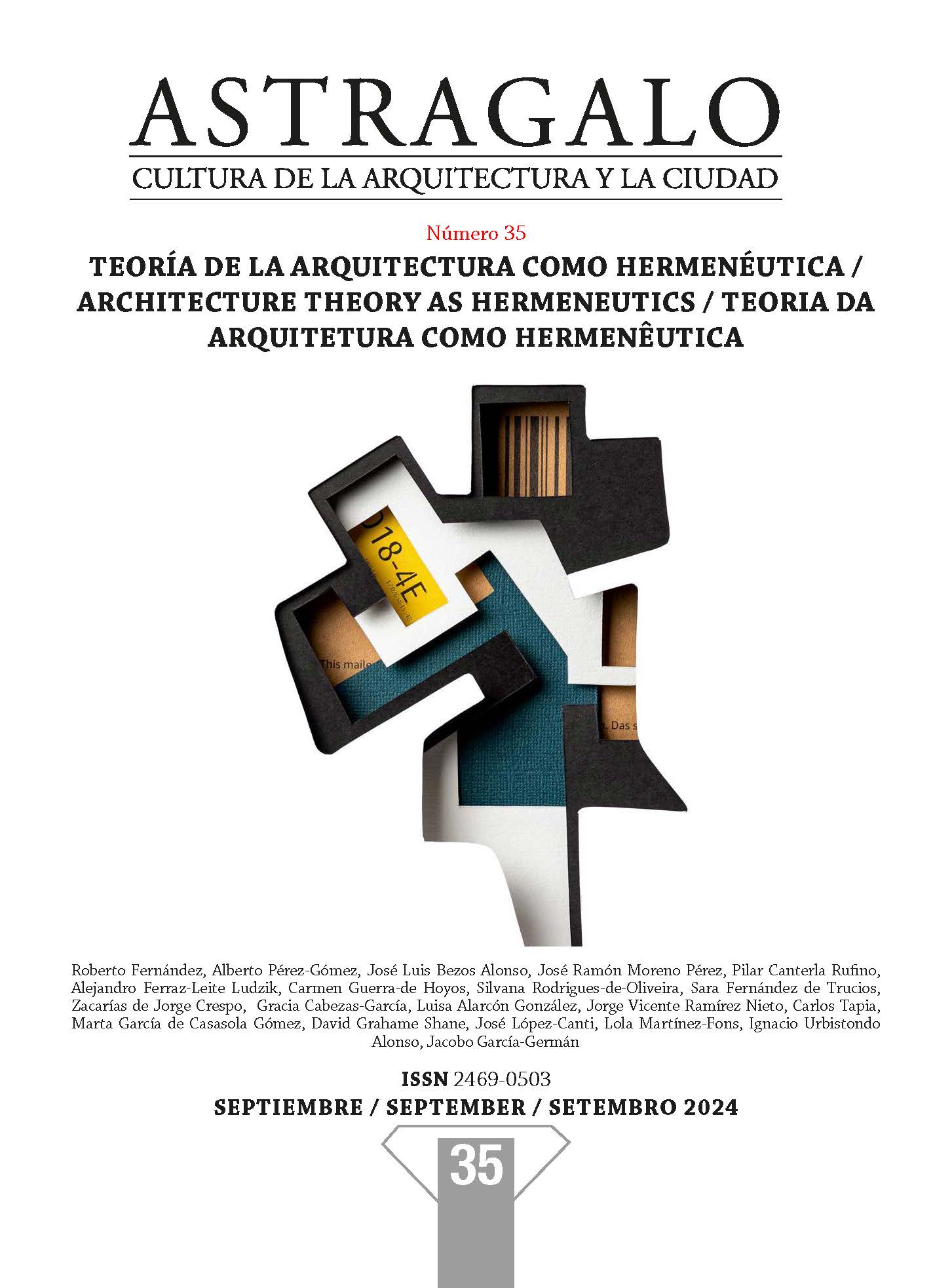Hermeneutics as Architectural Discourse
DOI:
https://doi.org/10.12795/astragalo.2024.i35.02Keywords:
hermeneutics, architectural theory, narrative, historical time, ethics.Abstract
Hermeneutics plays a crucial role in architecture, emphasising interpretation and meaning beyond the physical construction. Architecture is not only a response to practical needs, but an expression of the human condition, addressing issues of mortality and transcendence. The "discursive universe" of architecture contributes to our understanding of ourselves and our psychosomatic health, offering a communicative space that allows us to recognise ourselves as whole beings. Historically, architectural theory has evolved from a focus on applied science towards a recognition of the importance of ethical and cultural values. The modern trend towards technological efficiency and hedonism has led to urban environments that often ignore these values, resulting in alienating spaces. Therefore, architectural theory must be reoriented towards a discourse that articulates the ethical and poetic functions of architecture and urban design. Vitruvius stressed the importance of stable principles and practical knowledge, suggesting that architecture must be based on a deep understanding of the cosmos and human experience. Architectural theory must therefore incorporate narrative and cultural meaning, allowing architects to express their position and design responsibly for the common good.
Downloads
Downloads
Published
How to Cite
Issue
Section
License
Copyright (c) 2024 Alberto Pérez-Gómez

This work is licensed under a Creative Commons Attribution-NonCommercial-ShareAlike 4.0 International License.


















